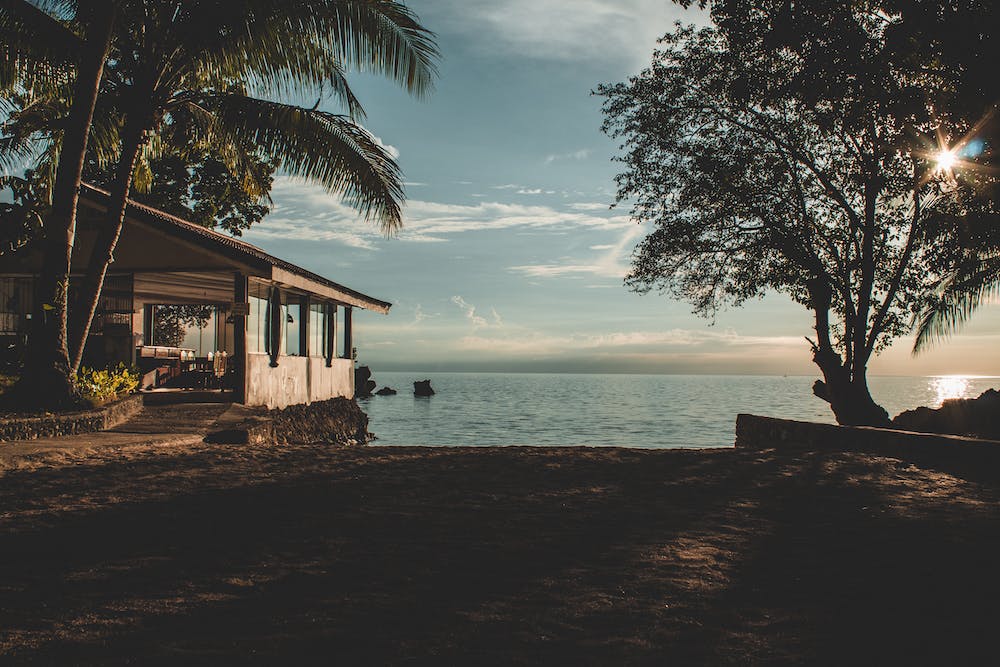If you’ve always dreamed of owning a vacation home, you’re not alone. Many people want to have a place to escape from the stress of everyday life, enjoy some quality time with their loved ones, and experience new adventures. But buying a vacation home is not as simple as picking a destination and signing a contract. You need to consider the financial aspects of this big decision and plan accordingly. Here are five home financing tips for buying a vacation home that can help you make your dream a reality.
 1. Save up for a large down payment. Unlike primary residences, vacation homes usually require a higher down payment, typically 20% or more of the purchase price. This is because lenders consider vacation homes as riskier investments than primary homes, since they are more likely to default or face foreclosure in times of financial hardship. A larger down payment can lower your interest rate, monthly payments, and mortgage insurance costs, as well as increase your chances of getting approved for a loan.
1. Save up for a large down payment. Unlike primary residences, vacation homes usually require a higher down payment, typically 20% or more of the purchase price. This is because lenders consider vacation homes as riskier investments than primary homes, since they are more likely to default or face foreclosure in times of financial hardship. A larger down payment can lower your interest rate, monthly payments, and mortgage insurance costs, as well as increase your chances of getting approved for a loan.
 2. Shop around for the best mortgage rates and terms. Just like with any other loan, you should compare different lenders and mortgage products to find the best deal for your vacation home. You can choose from various types of mortgages, such as fixed-rate, adjustable-rate, or interest-only loans, depending on your preferences and financial situation. You should also consider the fees and closing costs associated with each loan option and factor them into your budget.
2. Shop around for the best mortgage rates and terms. Just like with any other loan, you should compare different lenders and mortgage products to find the best deal for your vacation home. You can choose from various types of mortgages, such as fixed-rate, adjustable-rate, or interest-only loans, depending on your preferences and financial situation. You should also consider the fees and closing costs associated with each loan option and factor them into your budget.
 3. Consider renting out your vacation home when you’re not using it. One way to offset some of the costs of owning a vacation home is to rent it out to other travelers when you’re not there. This can generate extra income that can help you pay off your mortgage faster, cover maintenance expenses, or fund future trips. However, you should also be aware of the tax implications, legal regulations, and management responsibilities that come with renting out your vacation home. You may need to hire a property manager, pay taxes on your rental income, and follow local rules and regulations regarding short-term rentals.
3. Consider renting out your vacation home when you’re not using it. One way to offset some of the costs of owning a vacation home is to rent it out to other travelers when you’re not there. This can generate extra income that can help you pay off your mortgage faster, cover maintenance expenses, or fund future trips. However, you should also be aware of the tax implications, legal regulations, and management responsibilities that come with renting out your vacation home. You may need to hire a property manager, pay taxes on your rental income, and follow local rules and regulations regarding short-term rentals.
 4. Be realistic about your usage and expenses. Before you buy a vacation home, you should have a clear idea of how often you will use it and how much it will cost you to maintain it. You should factor in the expenses such as utilities, insurance, property taxes, repairs, landscaping, and security. You should also consider the travel costs and time involved in getting to and from your vacation home. If you don’t plan to use your vacation home frequently or if the costs outweigh the benefits, you may want to reconsider your purchase or look for a more affordable option.
4. Be realistic about your usage and expenses. Before you buy a vacation home, you should have a clear idea of how often you will use it and how much it will cost you to maintain it. You should factor in the expenses such as utilities, insurance, property taxes, repairs, landscaping, and security. You should also consider the travel costs and time involved in getting to and from your vacation home. If you don’t plan to use your vacation home frequently or if the costs outweigh the benefits, you may want to reconsider your purchase or look for a more affordable option.
 5. Think long-term and be flexible. Buying a vacation home is a long-term commitment that requires careful planning and flexibility. You should think about your future goals and needs and how they may affect your vacation home ownership. For example, you may want to retire in your vacation home someday, or you may want to pass it on to your children or grandchildren. You should also be prepared to adapt to changing market conditions, personal circumstances, and lifestyle preferences. You may need to refinance your mortgage, sell your vacation home, or switch to a different location at some point.
5. Think long-term and be flexible. Buying a vacation home is a long-term commitment that requires careful planning and flexibility. You should think about your future goals and needs and how they may affect your vacation home ownership. For example, you may want to retire in your vacation home someday, or you may want to pass it on to your children or grandchildren. You should also be prepared to adapt to changing market conditions, personal circumstances, and lifestyle preferences. You may need to refinance your mortgage, sell your vacation home, or switch to a different location at some point.
 Buying a vacation home can be a rewarding experience that can enhance your quality of life and create lasting memories. But it can also be a challenging and costly endeavor that requires a lot of research and preparation. By following these five home financing tips for buying a vacation home, you can make an informed decision that suits your budget and lifestyle.
Buying a vacation home can be a rewarding experience that can enhance your quality of life and create lasting memories. But it can also be a challenging and costly endeavor that requires a lot of research and preparation. By following these five home financing tips for buying a vacation home, you can make an informed decision that suits your budget and lifestyle.
